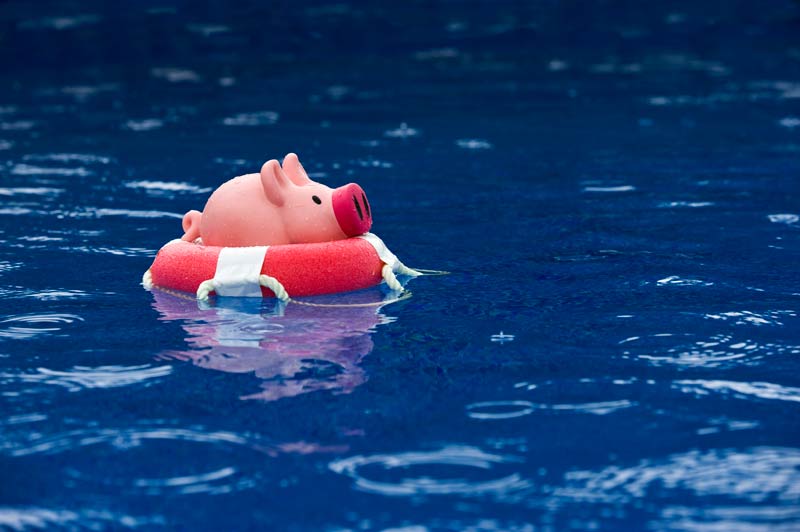During recessionary times, many Americans experience hardships like job loss that negatively impacts their way of life. This may cause people to fall behind on bills and send their financial well-being seemingly spiraling out of control. Even after people have found new employment, their new income may be insufficient to regain their previous lifestyle, especially if they find themselves climbing out of the doldrums of debt.
When faced with the choice of saving for your future and paying off debt, it may be difficult to decide which path to take. And while the dilemma may first appear daunting, the answer may be easier than you think.
Why not do both?
With a reduction in income and an increase in debt, saving and paying off debt at the same time may seem impossible. The challenge lies not in the execution, but in changing your mindset to accommodate your new reality.
Reducing debt plays a major role in creating financial stability. The weight of debt will continue to hold you back from accomplishing many of your goals and it simply makes life more expensive to live. For this reason, the bulk of your money will go towards debt reduction.
However, you will also need to save. Life throws curves all the time and you have to do your best to prepare for these curves. Having funds set aside for the unexpected happenings of life will put you in the best position to succeed and progress.
Start where you are
Realizing the importance of both saving for an emergency and debt reduction, it’s time to assess what you can realistically do to begin this path. This requires looking to reduce your current expenses in order to redirect monies towards debt reduction and saving.
In the short-term, you’ll want to look to reducing your bills for your cell phone, utilities, and food. You may also need to reduce your entertainment expenses, like going out to eat or getting rid of Netflix, but don’t get rid of them entirely. Sometimes fun is necessary. Long term, you’ll want to reduce your housing cost, i.e., rent, and to increase your income. All of these options will allow you to free up money to pay down debt and save.
Pay yourself first
Every financial expert will tell you to pay yourself first and here it’s no different. You owe it to yourself to prepare for a future of financial independence and you should allot a portion of every paycheck you receive for that purpose.
If you currently have no savings, then it’s important that you get started and set a goal to reach. Aim for saving $500 to $1,000 for emergencies and work your way up to having three to six months worth of income set aside. Work to save 5% to 10% (or a portion of whatever you’ve gleaned from reducing your current expenses) from each paycheck until you reach your savings goals. It may prove difficult at first, but after a few paychecks, you’ll become accustomed to living on the remaining funds. Also, periodically check your savings balance for motivation to keep going.
While saving 10% of your earnings is ideal, it’s more important to save any amount you can or feel comfortable with saving. Building the habit of saving and getting accustomed to living on less than you earn are the important ideas to establish. These are major parts of changing your mindset for saving and paying off debt simultaneously.
Attack that debt
Once you have set aside your amount for savings, it’s time to look at paying down your debt. When thinking of handling your debt, your first thought may be bankruptcy. Considering how much debt you have, bankruptcy may be a viable solution. If you’re seriously considering this path, it’s best you speak with a bankruptcy attorney. If you’re choosing to pay down your debt via traditional means, then look at your expense reduction. Whatever you haven’t allotted for savings should be put towards your debt.
Debt reduction, like saving, takes a bit of discipline and a lot of patience. It also takes some strategy as well. While you’re paying off debt, look to work with creditors to agree on a payment plan you can afford. Also, attack debt that carries the highest interest rate first and work your way down. With a plan in place, paying down your debt will become manageable.
Saving money and paying off debt will prove to be challenging, but it is possible. Focusing on your goals and believing you can push forward will help you to achieve both at the same time. Also, remember to take into account any “found” money you may come across, such as pay raises or birthday/holiday gifts. These extra funds provide a little boost to your savings and debt pay-off rate. Again, patience is important. It takes time to build respectable savings or to significantly decrease your debt.




